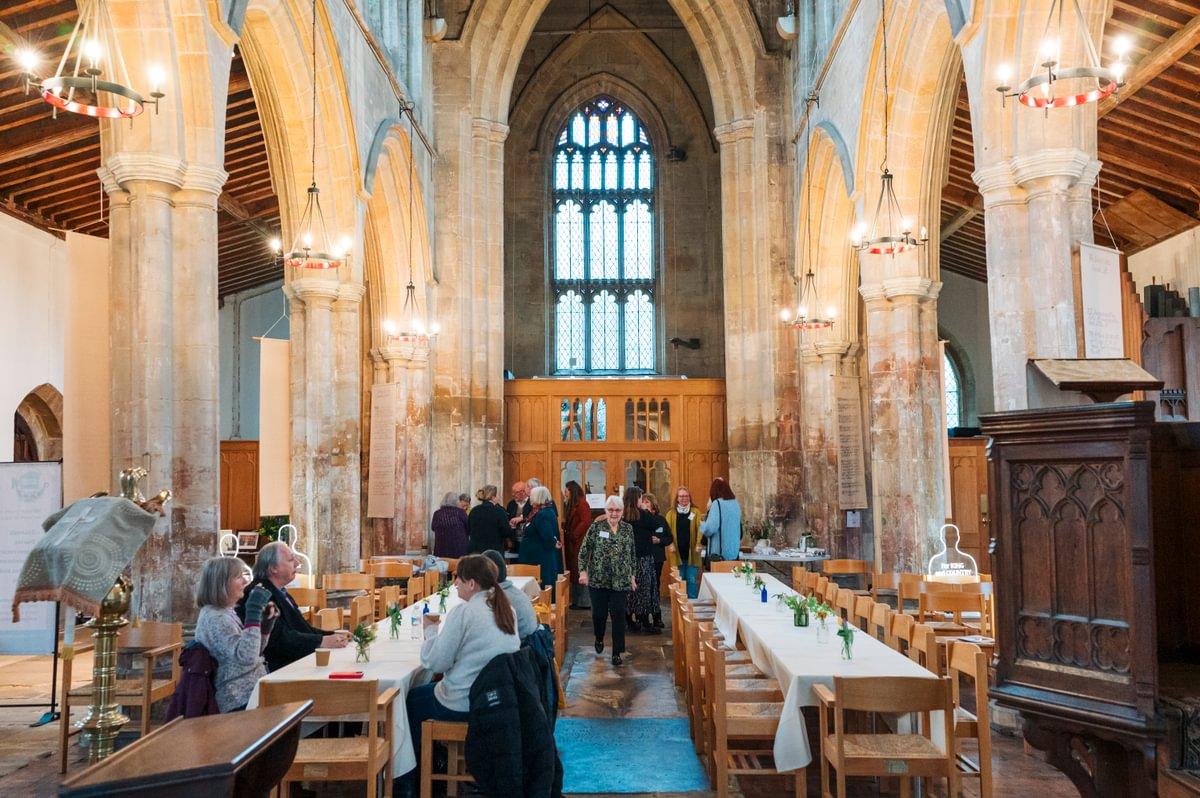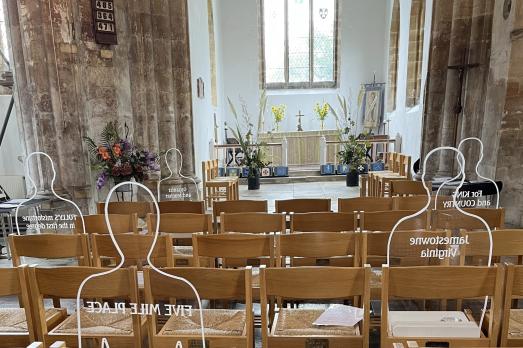
Open Doors and Shared Spaces
Churches are also cultural and social centres – 66% host music groups, nearly half on at least a weekly basis (43%), inspiring creativity and confidence while bringing people together across generations. Just over three quarters (76%) host community gatherings such as coffee mornings or toddler groups which weave networks of belonging that are especially important in rural or deprived areas where other meeting spaces are scarce.
Churches rarely operate in isolation and in the Survey 53% report their building being used at least once per week by outside organisations, while 21% serve as a regular base for community or charitable groups. This shows that churches impact wider social settings, amplifying connections through partnerships with charities, local authorities, and voluntary organisations.
The Survey finds that 49% of churches host youth groups, with a third meeting at least weekly. In many areas, these represent some of the only structured and safe opportunities available to young people, filling the gaps left by the closure of other youth clubs and community centres in recent years. According to the charity Mind and its 2024 Big Mental Health Report, in England alone 1 in 5 children and young people are now living with a mental health difficulty, an increase from 1 in 9 in 2017. In this context, church-based youth groups are more than social gatherings – they are grounding opportunities for friendships, belonging and wellbeing.
Beyond the immediate benefit, hosting youth groups in heritage settings represents an investment: when children sing in choirs beneath stained glass, or gather in medieval naves for youth nights, they are not just taking part in activities but bonding with local history. These experiences could help ensure that the next generation values, cares for, and champions their church buildings as vital community assets.

What St James the Great means to me
By David Cox, a member of the Square Peg Club, run by South Lincolnshire Dementia Support
St James the Great in Aslackby is one of the venues the group meets in. The rural church created an audio trail, funded by The National Lottery Heritage Fund, which was researched and voiced by local people with Early Onset Dementia.
This wonderful church serves the wider and local community and can best be described as entirely inclusive for all who use it, whether attending Parish Services or by taking part in the many varied secular all–age activities and events enjoyed by so many. Chris and Denise [church wardens at St James the Great], supported by many other community members, put their hearts and souls into preparing for all the planned events and they totally deliver in every aspect, above and beyond. [We] have been lucky to have been so warmly welcomed and openly embraced by this church for
many years now.
Square Peg Club members, all living with Dementia, have spent several happy and memorable activity days here. These past two years, we have been immersed in exploring, discovering and documenting by word and audio the amazing history of this wonderful building. We have felt excited and motivated to have been involved and to have contributed to the significant amount of work required to meet the required project outcomes.
The result is quite clearly apparent, an example of just what can be achieved given the motivation, will and encouragement to succeed. Speaking on behalf of my Square Peg Club friends, yes, we have a diagnosis of young/early onset Dementia – a hammer blow to receive and process.
We are all at varying stages of our journey, but I strongly state we are just the same people as at the point of receiving a diagnosis – of course life necessarily adjusts, but we remain living, feeling individuals. Quite simply, we merely wish to be treated with respect and not categorised or marginalised in any way. Sadly, many professional organisations can adopt such an attitude.
By contrast – and returning to this wonderful church and community – St James was awarded ‘Dementia Friendly Status’ and justifiably so. Whereas some organisations openly display their ‘Dementia Awareness’ accreditation but fail to follow through – they could learn much from this church’s attitude and fine example.
